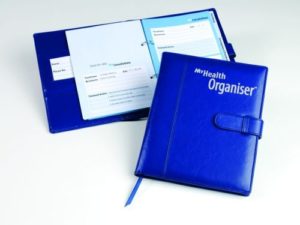Share
By Kaye Brand – Fibromyalgia Support network.
 Recently I was reading an article from the University of California Personal health record San Francisco regarding relationships between patients and their doctors. The authors described this relationship as a very personal one built on communication and trust. They recommend that in choosing a doctor, we must be aware that the “chemistry’ between the patient and the doctor must work. The article suggested some things we can do to build a more effective relationship with our doctor.
Recently I was reading an article from the University of California Personal health record San Francisco regarding relationships between patients and their doctors. The authors described this relationship as a very personal one built on communication and trust. They recommend that in choosing a doctor, we must be aware that the “chemistry’ between the patient and the doctor must work. The article suggested some things we can do to build a more effective relationship with our doctor.
* Be Organized
Doctors are busy, so you need to know how to get the most from their limited time with you. This means that you must be organized and focused on the issues you want to address. Think in advance about the questions you want answered. Be prepared and have something to write down the answers. You could use your phone but doing this often means you are losing eye contact
* Keep Good Records
Provide your doctor with good, accurate information about your symptoms and medications so he or she has the necessary tools to accurately diagnose your condition and prescribe appropriate treatment. A list of medications and supplements you are taking, recent symptoms and the dates at which they occurred, any recent tests and names of other doctors you are seeing can be useful information to share with your doctor. A record of primary symptoms in the last few days is helpful.
* Set the Tone
Let your doctor know how much or how little you want to participate in the decision-making process and whether you want very detailed information about all treatment options or just general information. Consider what action or information you want to take away from the consultation and communicate this from the beginning of the consult.
* Be Assertive
There is virtually nothing more important than your health. Just as you would not buy a house without asking questions, don’t be afraid to ask your health practitioner questions. If your concerns are not addressed to your satisfaction, be assertive. Let your doctor know that you still have questions and ask if an additional appointment can be set up, whether the appointment can be extended or if there are other staff members who can address your questions. Balance assertiveness with respect and understanding.
The My Health Organiser is a useful tool to assist you to communicate with your doctor.
Be Organised … Be Healthy
* Record your pain
Download this file and take it to your next appointment. Pain assessment form 1
